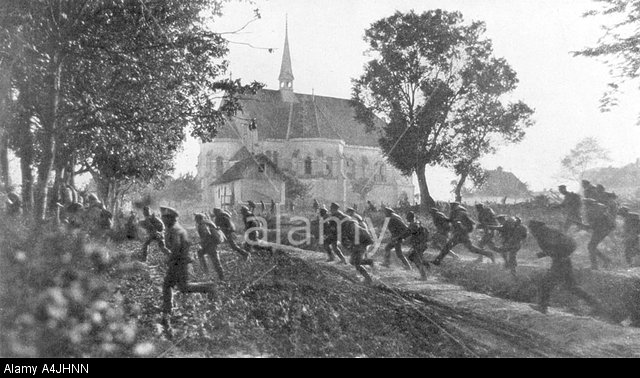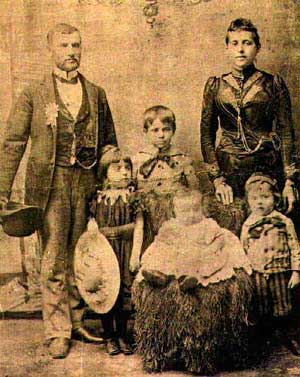Russian Occupation Leaves No Room for Poles, Ukrainians, and Jews;
Pogroms widespread
Special to The Great War Project
(3-4 March) Life is becoming very difficult for ethnic minorities living in territory that Russia has seized in its victories over the Austrians in Central Europe.
Russian successes on the battle field are delivering into Russian hands. much of what is Eastern Europe then ruled by the multi-ethnic Habsburg Dual Monarchy.
But these invasions of Germany and Austria by Russia do not receive much mention in history books today, writes historian Alexander Watson.
“The victims have been forgotten, their suffering and the wrongs inflicted upon them disregarded….
…Yet the importance of the Russian attacks cannot be overstated.”
Europe knows this territory as Galicia, today’s southern Poland and Ukraine.
In these days a century ago, the Russian Tsar Nicholas II calls this territory “Greater Russia.” This is “native Russian land” he and other Russian leaders assert, “and should be ruled according to Russian principles.”
This has profound implications, especially for three ethnic minorities living in these regions –Poles, Ukrainians, and Jews.
“For most educated Poles,” writes Watson, “it was clear that the Russians posed a mortal threat to their political hegemony in eastern Galicia.”
Worse for Ukrainians. “The Tsarist regime denied the existence of any such entity as the Ukrainian people,” Watson reports, “and had long striven ruthlessly to suppress all nationalist stirrings within its own Ukrainian minority.”
Ukrainian leaders in large numbers are jailed or exiled to remote parts of Russia. The Ukrainian language is prohibited. According to Watson, Ukrainian bookshops are closed, and books and newspapers in the Ukrainian language are banned.
It is even worse for the Jews of Galicia.
Many Russian officials believe that “Jews were spying and working to undermine the Russian occupation,” writes Watson. This treatment comes from Russians and Austrian officials as well. “Many Habsburg police and justice officials collaborated with the Russians, and some took advantage of the occupation regime’s anti-Semitism to vent their own hatred of Jews.”
Russian troops burn Jewish buildings and villages. At night in many towns and villages, murder is widespread.
In the morning, “the corpses of the dead were terrible to behold, their faces distorted,” writes Watson.
Russian leaders “foresaw no place for Jews in Galicia’s Russian future.” Precisely a century ago, Russia promulgates edicts that permit the seizure of Jewish land. Jews are also prohibited from moving about freely in Russian-occupied lands.
Illogically, that includes Jewish tradesmen who sell important supplies to the Russian army. This in turn fuels charges from Russian commanders that Jews are sabotaging the Russian war effort.
A century ago the Russian commander-in-chief orders that all Jews be expelled westward, out of Russian-occupied lands and into Austrian territory.
Within a week, thousands of Jews are rounded up, and the Russian army fulfills orders to deport them. In one Polish town 17,000 Jews are deported in terrible conditions.
“The old, infirm and infants were among the people forced out of their homes,” reports historian Watson, “with no thought given as to how they could be provisioned and sheltered. Many died from hunger, exhaustion, and exposure.”
In all tens-of-thousands of Jews are expelled from their homes in these territories during these days a century past.


